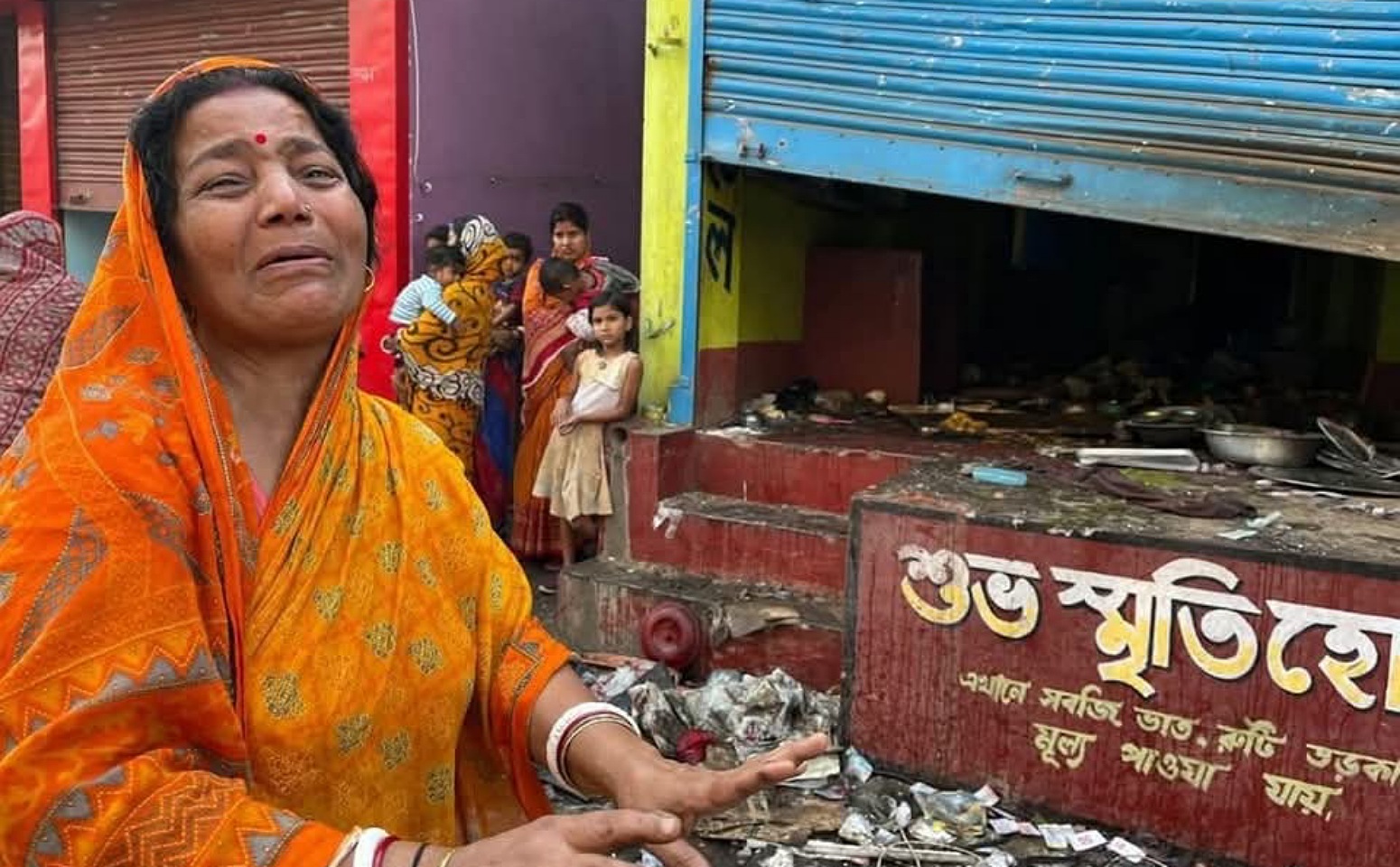
Hindu Voice Team: The Calcutta High Court on Wednesday took a strong stance against the West Bengal government over the delayed compensation for Hindu families- victimized during the recent anti-Hindu violence in Murshidabad. The unrest, triggered by protests surrounding the controversial Waqf Bill, left numerous households destroyed, livelihoods disrupted, and communities traumatized.
During the proceedings, the bench expressed grave concern over the slow pace of relief measures, emphasizing that many affected Hindu families remain without adequate support months after the violence. The court observed that despite the magnitude of the destruction—including burnt homes, looted shops, and damaged personal property—victims have yet to receive meaningful compensation or assistance for rehabilitation.
The judges demanded that the state government submit a detailed timeline for disbursing compensation and a comprehensive plan for rehabilitating the affected Hindu families. They stressed that delayed action not only prolongs the suffering of victims but also risks further escalation of communal tensions in the sensitive Murshidabad region.
Legal experts note that the court’s intervention highlights the judiciary’s commitment to protecting minority communities from targeted violence. The bench underscored the responsibility of the government to ensure the safety and welfare of all citizens, pointing out that victims of communal unrest cannot be left in limbo while bureaucratic delays continue.
Eyewitness accounts and local reports from Murshidabad paint a grim picture of the aftermath of the violence. Many Hindu families were forced to flee their homes, some temporarily residing in relief camps, while others struggled to rebuild their lives amid inadequate government support. The court’s order is expected to accelerate the process of financial compensation and provide much-needed relief to these families.
This intervention by the Calcutta High Court sends a clear message to the West Bengal government: communal violence, especially targeting vulnerable Hindu communities, must be addressed swiftly and decisively, and victims must receive timely justice and rehabilitation. Officials have been instructed to present an actionable plan outlining immediate compensation disbursement and long-term preventive measures to avoid similar incidents in the future.
The incident in Murshidabad, combined with the court’s strong response, has reignited discussions about communal harmony, governance accountability, and the protection of minority communities in West Bengal, underlining the urgent need for proactive measures to prevent further violence.